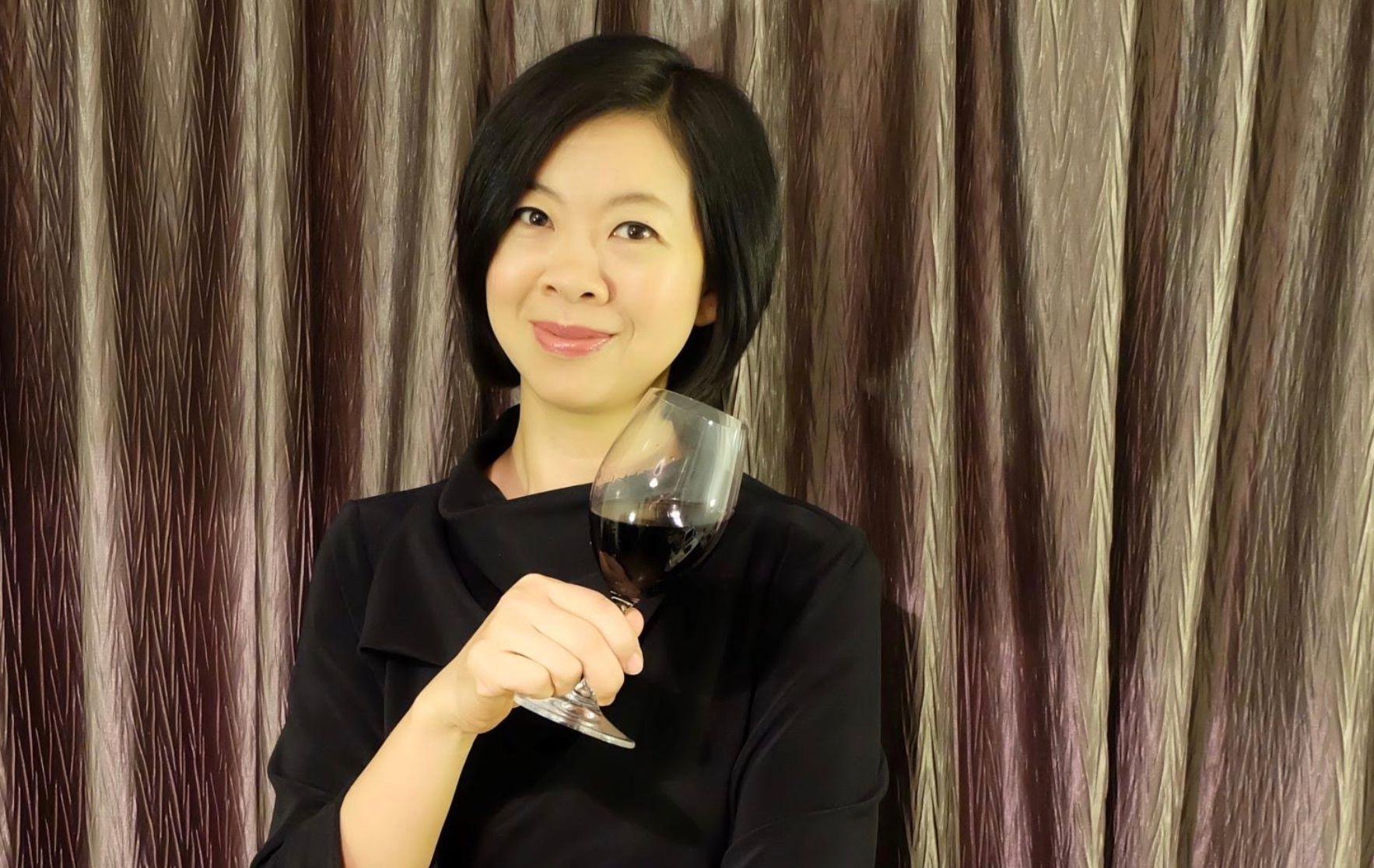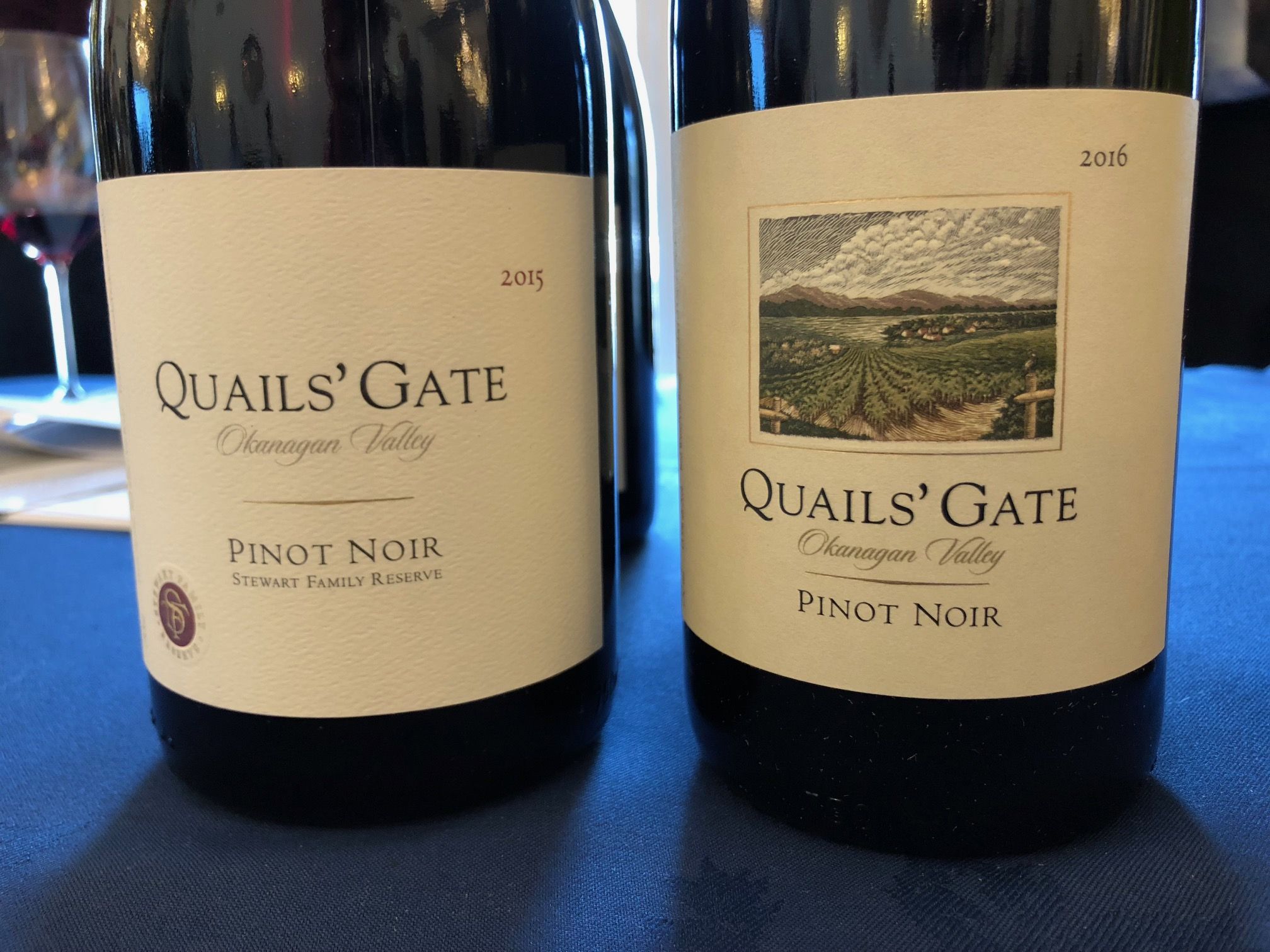Leona De Pasquale on her love for wine and starting a new career as a wine educator, with Camellia and Vine, and is now studying to be a Master of Wine.
Can you tell us about your background before you got into wine?
I grew up in Taipei, the capital of Taiwan and had never tried alcohol before the age of 25. In Taiwan, back then, the society was quite traditional and conservative, and the common belief was that “good girls” should not drink alcohol, fortunately, it is so much more globalised now. Instead of wine, in our family, the daily drink has always been Taiwanese oolong tea.
I studied English literature at the university in Taiwan and most of my classmates wanted to be English teachers or work for big international companies in admin or operations. I had a different idea. I wanted to do something that could allow me to travel around and not be stuck in front of a desk all day. My first job after graduation from university was as a tour leader for a big tour operator in Taipei, taking groups of guests from Taiwan to holiday destinations in Southeast Asia, such as Bali, Thailand, and Malaysia. After 12 months, I got the offer to work for Club Med and lived in a resort in Indonesia for almost a year. Those two years were fun, without a doubt.
How and why did you get into the wine industry?
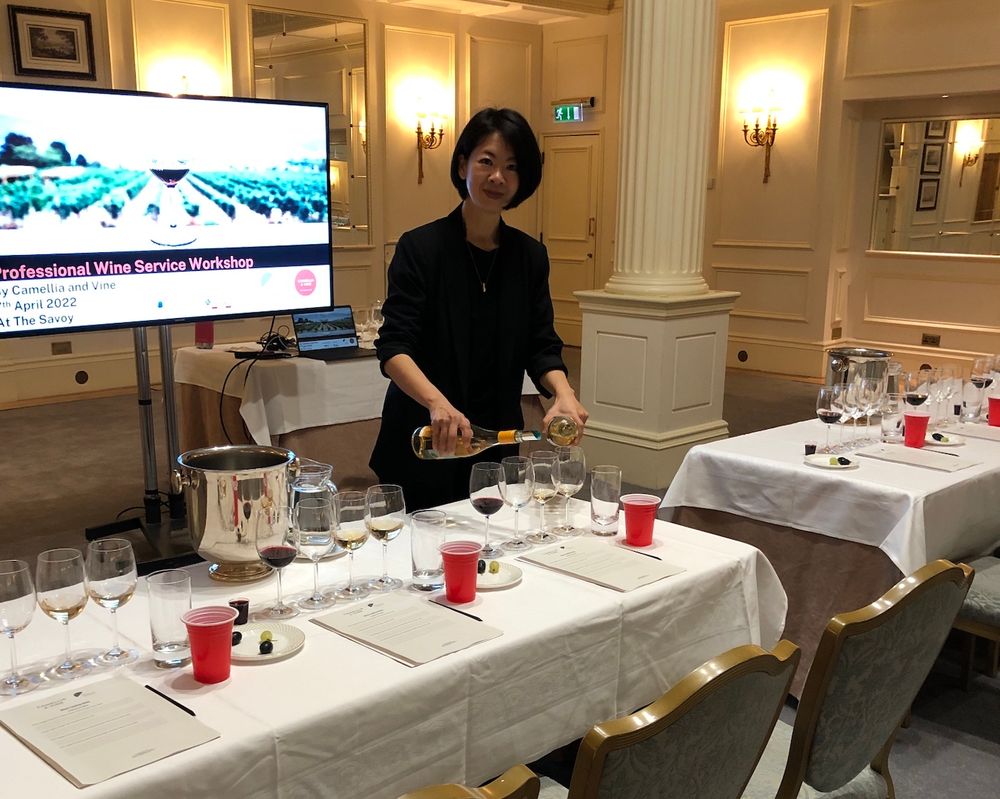
Leona De Pasquale switched from a career in tourism to become a wine and tea educator
When I was working for Club Med, one of the best things, at least for me, was the staff ate at the table with the guests rather than in a separate staff canteen. So, of course, wines were always available on the table. I still didn’t drink alcohol at that time, but I knew that wines were not just for “bad girls” as everyone drank them. After nearly a year in Club Med, even though life was fun, I also realised that fun could also mean not earning very much. Therefore, with my parent’s support, I came to the UK to study for a Master’s degree in tourism marketing.
The reasoning behind this was that with such a degree, I would be able to stay in hospitality and tourism but get better paid. After getting my postgraduate degree, I soon got a job in the F&B department as a PR exec at Sheraton Hotel and subsequently at Ogilvy PR (the best PR agency in Taiwan). With my PR experience in food and tourism, I was headhunted by Sopexa Taiwan, at that time, a semi-governmental marketing agency getting budgets from the French government to promote French wine, fruit, and cheese in Taiwan.
I wasn’t selected for my wine knowledge, as I had none of that, but for my experience in PR and media relations. Since most of the budgets in Sopexa were from various French wine interprofessional, it was a little bit tricky for someone who didn’t drink wine to come up with convincing stories for journalists. I started to learn on the job little by little. It helped as Sopexa only worked with the best wine experts in Taiwan so I learnt fast from real professionals.
As someone who had not drunk before what was it that attracted you to wine and to want to find out more about it?
The lightbulb moment came during a series of French food and wine events which we (Sopexa) organised and worked with different French restaurants in Taiwan featuring French regional cuisine and wines. One such event was about Alsace and we had a Gewurztraminer on the pairing menu. I still remember when I sniffed that glass of Gewurztraminer, for the very first time, I didn’t smell “just alcohol” but lychees, roses and honey, etc. That was a mesmerizing experience as I finally understood wine could be really enthusing with so many aromas, just like tea which I was so familiar with.
What have been your key experiences in wine to date and what made them so important to you?
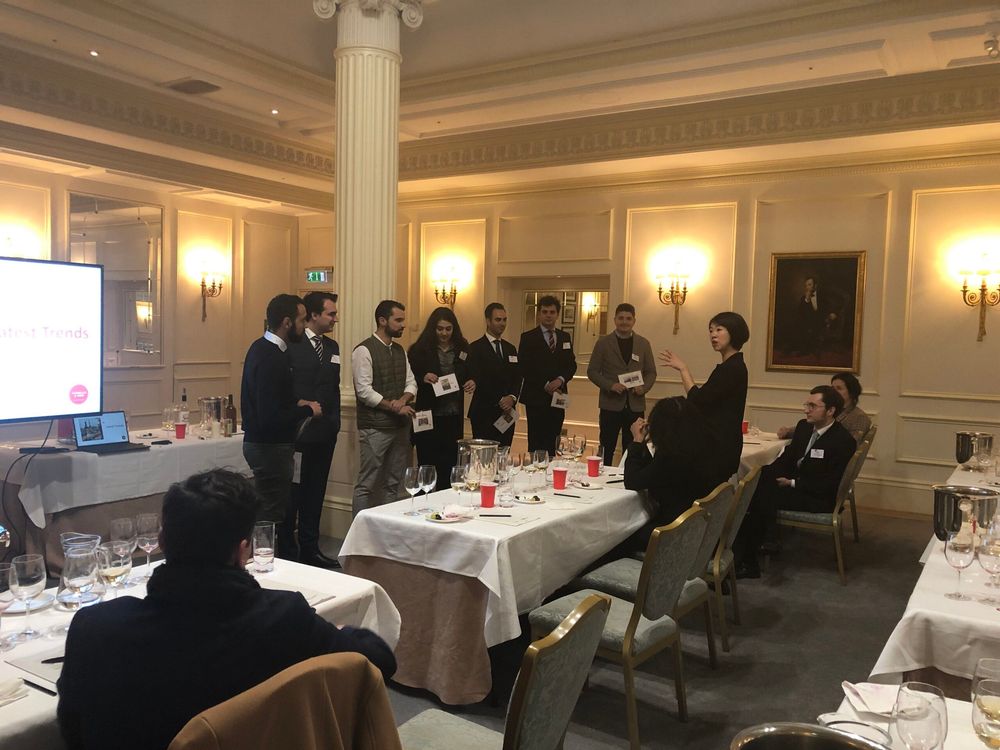
Leona De Pasquale hosting one of her wine education sessions
Working for Sopexa Taiwan kicked start my passion for wine. After three wonderful years, I moved to the UK and got my WSET Level 2 and 3 within six months. After that, I studied for the WSET Diploma and gained it in 2016. During those years, I have been writing for wine magazines in Taiwan and translated many important wine books into Chinese, so all those projects helped me to enhance my wine knowledge.
I also worked part-time for Vinopolis in London Bridge (sadly permanently closed in 2015). It was then that I realised that I wanted to be a wine educator as I love talking about wine. It was my goal of becoming a wine educator that led me to apply for jobs with wine importers.Since my wine journey started later than most wine professionals, I knew having various experiences in the wine trade would help me have a good understanding of the sector and be knowledgeable and confident when I teach. After working for three different importers for three years in different capacities, I found my dream job working as a full-time wine educator.
You have worked for some wine importers – what did you learn the most from them?
In the first year, I worked for Bibendum’s Customer Care team and achieved a great understanding of the logistics side of the business and the on-trade. During the second year, I had an internal transfer and worked for Walker & Wodehouse in sales operations, and I learnt a great deal about margins, sales, and the off-trade. In the third year, I worked for Berkmann Wine Cellars as the sales operations manager for multiple chains, supermarkets and restaurant groups, which helped me understand the other aspects of the wine trade.
All the elements learnt within those previous roles make my experience unique in a way as I have an understanding of various aspects of the UK wine trade, and I even learned what’s needed to export wine to the Channel Islands.

Leona De Pasquale was able to hone her education skills working for WineEd part of Jascots Wine Merchants
The highlight came in the fourth year when I got an offer from Jascots Wine Merchant’s wine education company WineEd and was responsible for the running of the wine education programme for the on-trade and teaching WSET. Sadly the company had to close its door last year due to the impact of the pandemic but I had three great years working there.
You have now set up your own wine and tea training company? How does that work and what was the inspiration behind it?
During the pandemic, I spent seven months in Taiwan and I got hooked on Taiwanese tea. Even though I grew up drinking tea, I never thought about it or looked at tea the way I look at wine. In short, I never took it seriously as it was so easy to get hold of. But wine and tea are both terroir-driven “living” products that can evolve with time and develop fascinating aromas and flavours.
After WineEd closed for business, I felt it was time for me to set up my own business in wine training because I love wine education and feel passionate about transferring my knowledge. Rather than just opening another wine training company, I thought I could combine my love for tea and wine and teach consumers and hospitality professionals more about those two amazing products in a fun and engaging way, so Camellia and Vine was born. I took two intensive courses with the UK Tea Academy and got the Tea Sommelier qualification. I then used my skills in training and my newly acquired “tea of the world” knowledge to develop a Tea Fundamentals training course, along with two wine courses, all of which are endorsed by the Institute of Hospitality.
What does the training involve?
At Camellia and Vine, we have different training courses but the logic behind is to start with developing aroma recognition skills and be familiar with common aromas in wine and tea.We offer Aroma Academy’s Foundation course of which I am a certified trainer. I always remember, back in 2006 when I first took WSET Level 2 course, that I had never heard of at least half of the aromas listed in the course material. For someone who doesn’t even know what gooseberry is or smells like, how do they link it to Sauvignon Blanc?
Following that, we have Tea and Wine Fundamentals courses and wine service training. Each is a two-hour workshop that fits perfectly between services for the hospitality sector. I also teach WSET courses. In addition, as a newly accredited wine educator in Madeira and Bordeaux wines, and hopefully soon become a certified Rioja wine educator, we will also run more sessions focusing on these regions in the near future.
What do you find so interesting about wine education?
When I got the WSET Diploma, I thought I already knew a lot about wine. But when I started the MW study programme, it became clear to me that I knew so little. This is the fun part of learning about wine, it’s never boring as there are always new things to learn: new regions (even Taiwan is making quality wines now), new grape varieties, new styles, and new winemaking techniques… In fact, there is too much to learn. We all know that the best way to learn something is to teach it to someone else, this is why I love teaching, it also helps me to learn more.
Has it helped you in your professional wine career?
Definitely, the biggest impact was when I got my WSET Diploma back in 2016. Lots of doors were opened because of that, including teaching WSET Level 3 and translating all three levels of WSET wine materials to Chinese. But the most important thing is that it boosted my confidence.
What are your ambitions still in wine?
To go as far as possible in the MW study journey. To bring more people with diverse backgrounds to the wine industry, especially in wine education. And to let more people know about wines from Taiwan; that is my passion project and I recently wrote an article about Taiwanese wine for the GuildSomm which can be found here.
What advice would you give people with no wine experience about how they get into the industry?
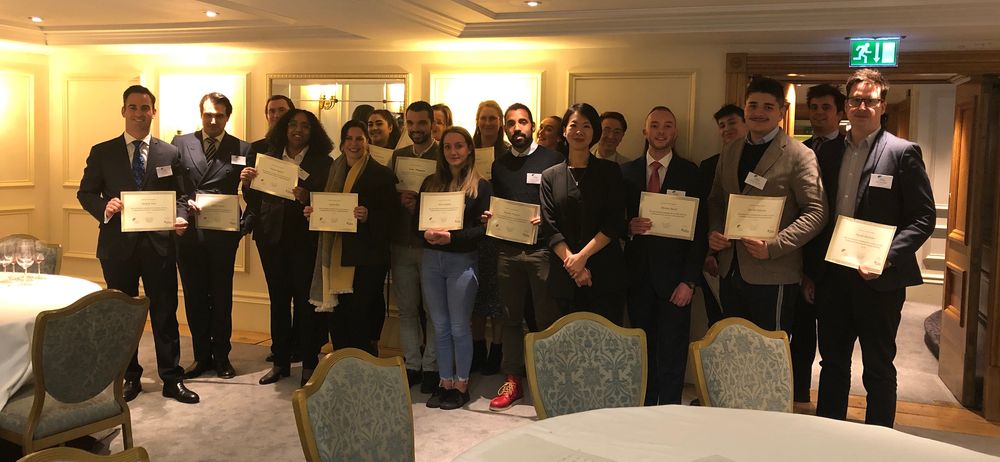
Leona De Pasquale with some of her accredited students
Treat the wine industry as any other industry (just more fun) that there are many positions that don’t require any prior wine knowledge, such as IT, finance, logistics, and even customer service. So don’t let the lack of any wine experience stops you from entering this fascinating industry as we need a lot of people with different skill sets. And the bonus of working in the wine industry is that you will definitely gain wine knowledge naturally just by being surrounded by lots of wine geeks.
What have been the hardest elements for you and challenges to overcome?
To pass the WSET Diploma D3 Theory exam was probably the hardest task so far, especially because I did it while working full-time and with a toddler to look after.
Working for myself has its challenges from regularly stepping out of my comfort zone to knocking on doors to introduce myself and my business. Being an optimistic person, who has always the end goal in mind, helps to overcome a lot of problems as I tend to see challenges as opportunities. This mentality does help.
What have been the highlights?
There are so many, but what springs to mind right now are all the accomplishments I have achieved so far, such as getting my WSET Diploma, being accepted into the MW programme, obtaining accreditations as a Madeira and Bordeaux Wine Educator, teaching at the WSET Bermondsey Street, having my articles published by various English publications, and meeting lots of inspiring people along the way. These are some of the pinnacles that I will forever cherish.
What are you most proud of?
For a wine educator, being asked to teach at the WSET Bermondsey Street feels like a stamp of approval. From a wine writer’s point of view, having my Taiwanese wine article published by GuildSomm this year made me proud especially since I have been told by so many people that it was far too niche. But I have learnt to keep trying and don’t just give up because people told you so.
- If you would like to contact Leona De Pasquale you can email her on leona@camelliaandvine.com and on social media on Instagram @leonadepasquale.wine.tea or @camellia_and_vine. To know more about Camellia and Vine’s training courses: https://www.camelliaandvine.com/courses.
